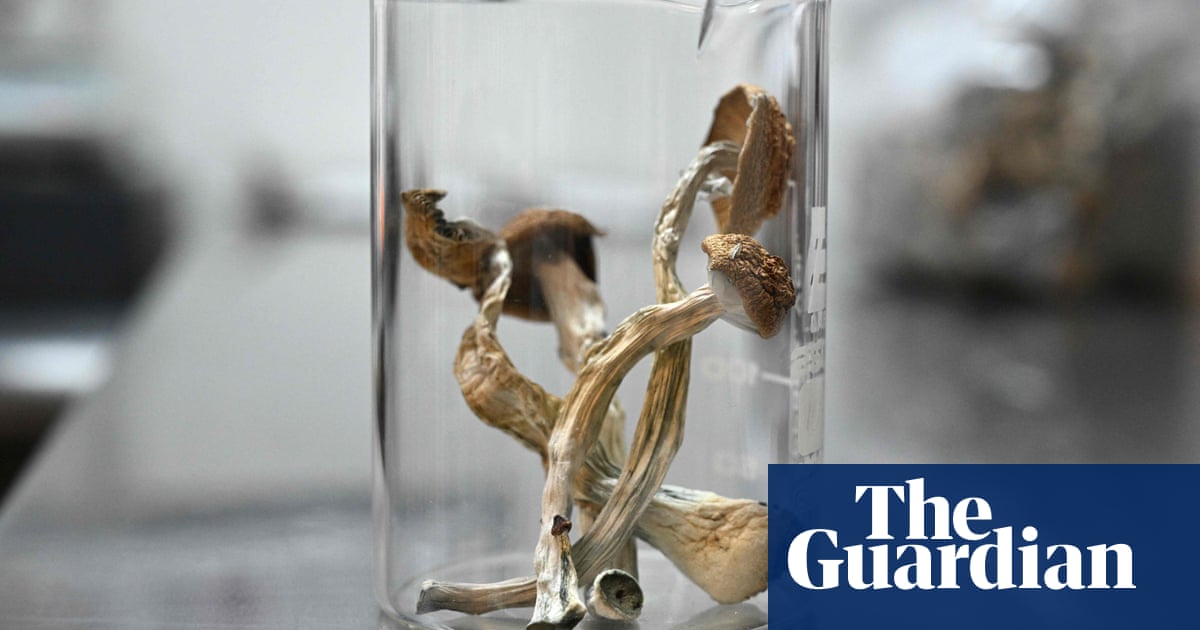
One in 100 people in England and Wales took hallucinogenic drugs in the last year as “magic mushroom” use increased by tens of thousands of people although use of ecstasy and nitrous oxide fell.
Increasing use by older adults was behind the rise in psychedelic tripping, according to annual figures about drug use among 16 to 59-year-olds from the Office for National Statistics.
The figures also showed a decline in drug use of all kinds in the year to March among 16 to 24-year-olds, from 21% using at least once in the 12 month period to 18% – the lowest level since 2014.
The annual ONS data suggests about 260,000 people aged between 16 and 59 have taken magic mushrooms in the last year, 100,000 more than in 2020.
Magic mushrooms – which are available in several varieties and are variously known as shrooms, mushies and liberties – are proscribed as a class A drug in the UK, which means possession and distribution are criminal offences regardless of whether the fungus is freshly picked from a field or forest, or dried or stewed.
But they are available online by mail order, including in grow-your-own packs, and many users harvest them in the wild for their own use. The rise in popularity of the fungus, which contains psilocybin, a psychedelic compound, comes amid a boom in interest in mushrooms in the wider culture. The Cambridge-educated biologist, Merlin Sheldrake, published a bestseller in 2020 about fungus called Entangled Life, which includes a chapter on the hallucinogenic properties of mushrooms. Netflix had a hit with a series called Fantastic Fungi.
Simon, an architect and parent in his fifties, told the Guardian he had started taking small doses of dried mushrooms last year after he found antidepressants were not helping him with long-term low mood. He started micro-dosing after buying a grow-your-own kit online from a link he had obtained having joined a magic mushroom community on the social networking app, Telegram.
He has been taking small doses daily in the mornings, including on work days, which don’t cause hallucinations but have improved his mood, he said.
“You feel your mood is pretty good and you remember what happiness feels like,” he said.
A slightly larger dose results in “a nice warm body tingle, like you are a little bit activated. It’s not like ecstasy, where you are all ‘I love you’ and you want to dance all night.”
He said he was not surprised about the increase in use among older adults as “they are not a party drug – they are a wiser person’s drug for someone who wants to chill out and spend some time navel gazing”.
Taking larger doses could be psychologically destabilising, he added. He once descended into an “existential rabbit hole” during a trip in which “trees looked like animals and as you close your eyes it looks like a Beatles album cover”. He said his wife looked a bit worried when he sat down at the kitchen table and said “I think I might be God”.
According to Frank, the drug advice service, magic mushrooms are not addictive and the biggest danger to health is eating a poisonous mushroom by mistake.
It also warns “if you have any mental health issues, magic mushrooms can make them worse.”
However, scientists around the world are becoming increasingly interested in the potential of psychedelic drugs to treat depression. A recent paper, involving researchers from Imperial College London, found that “when coupled with psychological support, effects can produce a rapid improvement in mood among people with depression that can last for months”.












